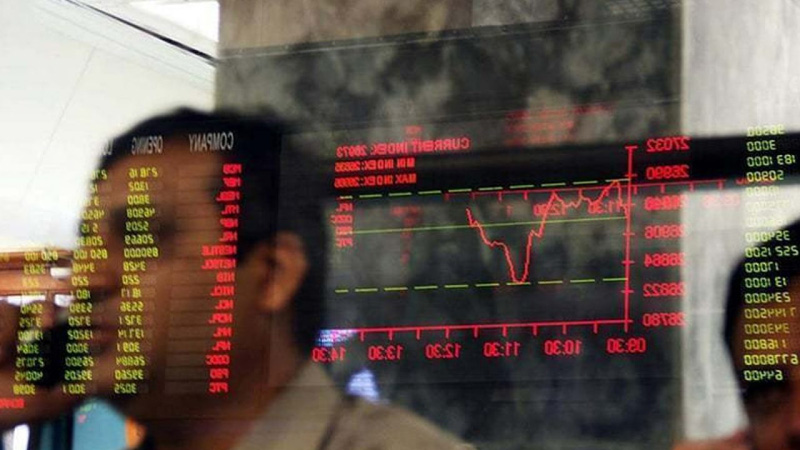 Stocks witnessed a cautious trading activity in the outgoing week, as risk-shy investors remained away from the index, owing to the rising Afghan crisis and approaching CGT submission deadline.
Stocks witnessed a cautious trading activity in the outgoing week, as risk-shy investors remained away from the index, owing to the rising Afghan crisis and approaching CGT submission deadline.
The benchmark kse-100 index exhibited a range bound session as it clocked at 47,834 points, up 0.6pc WoW, after trading between the weekly high of 47,890 points and a low of 47,388 points, respectively.Moreover, the average trading volumes fell by 4pc to settle at 467 million shares, while the traded value decreased by 10pc to average at $96 million.
Investor sentiments remained lukewarm primarily over approaching deadline for the Investors to submit CGT to the NCCPL by the July 16th i.e Friday, which continued to remain a major reason denting market participation, The NCCPLs’s move to collect CGT till May 21-11 month time, ahead of the normal 12-month time-which ends on June 30th- inflated the investors’ payables, as most of them booked losses in June to net off gains.
Additionally, the departure of US forces from Afghanistan has placed the region in a tight spot, as Afghan Taliban has been staking claim over 85pc of the country, risking a fallout in the neighbouring countries-with Pakistan facing a major security crisis on its western border. Institutional investors have particularly been concerned about the developing situation in Afghanistan that could have implications for an otherwise peaceful law and order situation in Pakistan, as well as the increasing current account deficit, which can lead to a decline in the rupee value vs the US dollar.
Investors were also piqued over the covid positivity ratio (currently at 5.2%) witnessing a major hike during the week which is alarming as the Eid festival gets closer. Sindh has already announced implementation of fresh lockdown measures, raising investors’ fears of widespread Covid SOPs which could possibly hurt economic activity- inimical for macro economic indicators.
Meanwhile, In the biweekly oil price change, the government hiked prices by Rs 5.4 per litre, placing pressure on inflation outlook; which could steer up State Bank of Pakistan’s (SBP) policy rate change.
However, despite a bearish start to the week, when the index recorded a 116 points loss on Monday, and a dip of Rs21 billion in market capital, the index gained ground in the last two sessions of the week and gained 342 points.
Investors cheered positive newflow with Eurobond proceeds of $1 billion, which also propped up the State Bank of Pakistan’s (SBP) foreign currency reserves to four-and-a-half-year high- a positive major positive macroeconomic indicator.
Moreover, since investors submitted their CGT payables to the NCCPL by the deadline that expired on Friday, fresh positions were taken in the market with major contributions driven by Insurance Companies.
During the week, the top performers among the scrips included Gadoon Textiles Limited which gained 23.9 pc followed by PSX which gained 13.6 pc, Systems Limited gained 7.3pc, Gul Ahmed Textile Mills Limited gained 6.0pc and Pakistan International Bulk Terminal gained 6.0pc.
Among the top losers, Haxol petroleum limited posted most losses, and retreated 5pc followed by HBL Growth Fund Limited and Standard Chartered Bank Limited and lost 4.0pc and 3.9pc respectively, while Nestle lost 3.1pc and Atlas Honda Limited lost 2.9pc.
According to the National Clearing Company of Pakistan Limited (NCCPL),among foreign investors’ net trade; Foreign Corporates bought $2.67 million worth of equities, Overseas Pakistanis mopped up $0.85 million worth of stocks and Foreign Individuals rake in up $1.089 million of stocks, taking the total net buying to about $4.61 million worth of stocks.
Among the local investors, Insurance Companies and Banks led the buying chart and bought $12.736 million and $1.71 million worth of equities.
However, Individuals, Brokers and Companies led the selling chart, offloading at net $9.98million, $6.32 million and $2.43 million worth of equities.
The market is expected to see a strong activity in the following weeks as the 4QFY21 results season comes in full swing. However, the fourth wave of Covid in July may further lead to investors’ flight.